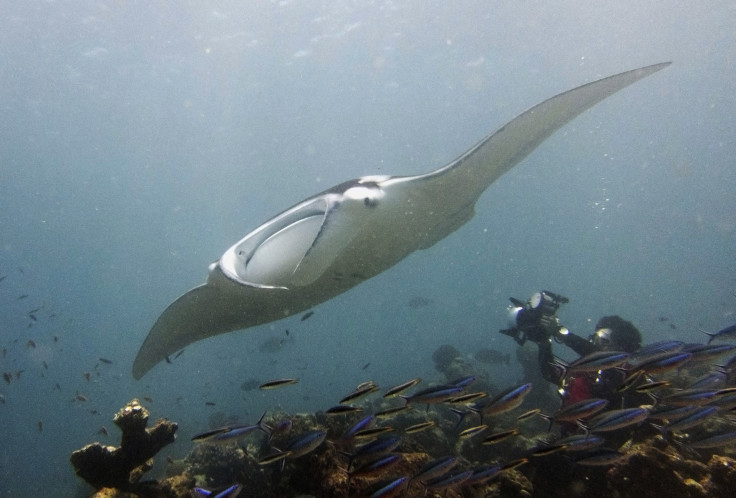Maldives Water Crisis Update: Scuba Diving Destination Grapples With Emergency Shortage As India Vows To Send Help

The Maldives, one of the world's most famous scuba diving destinations, is grappling with a shortage of drinking water after a fire at the nation's lone water sewage treatment plant left about 100,000 people in Malé, the capital, without safe tap water. India has sent five planes full of water, and the Maldives has also sought help from China, Sri Lanka and the United States.
The water crisis is expected to continue through next week after the fire damaged the electrical control system at the Malé Water and Sewerage Co. Thursday. The Maldives, a cluster of 1,190 coral islands southwest of India, depends on treated seawater because it has so few natural water sources, according to the Wall Street Journal.
“The only water available at Malé is stored in tanks and is being supplied for one hour every twelve hours,” India’s defense ministry said in a press release. Safa Mustafa, a spokeswoman for Red Crescent, told the Wall Street Journal that the government has distributed bottled water to residents, “but this is not enough.” As panic spread, desperate residents began attacking stores that were rationing bottled water, while hotels in Malé said they were running out of treated water, according to the Daily Mail.
The Maldives is home to about 400,000 people and hosts more than 750,000 tourists a year. Roughly 30 percent of the Maldives' gross domestic product comes from tourism and scuba diving is the main attraction, according to the Guardian. It was not immediately clear how the water crisis would impact scuba diving tourism.
“Indian assistance arrives in Maldives. First IL-76 with drinking water from India lands in Malé ,” India’s foreign ministry spokesman Syed Akbaruddin tweeted Friday.
. @umashankarsingh Photo of water in C-17 aircraft which landed a few hours ago in Maldives carrying 2nd consignment pic.twitter.com/AukM9Z6EE0
— Syed Akbaruddin (@MEAIndia) December 5, 2014Only people with a Maldivian identity card were eligible for the free water, with thousands of migrant workers from Bangladesh, India, Nepal, Pakistan and Sri Lanka unable to receive help, activists said. "Maldivians get water when they present ID cards. What about the thousands of unaccounted laborers in the Maldives?" political activist Shauna Aminath told the Daily Mail.
© Copyright IBTimes 2024. All rights reserved.












